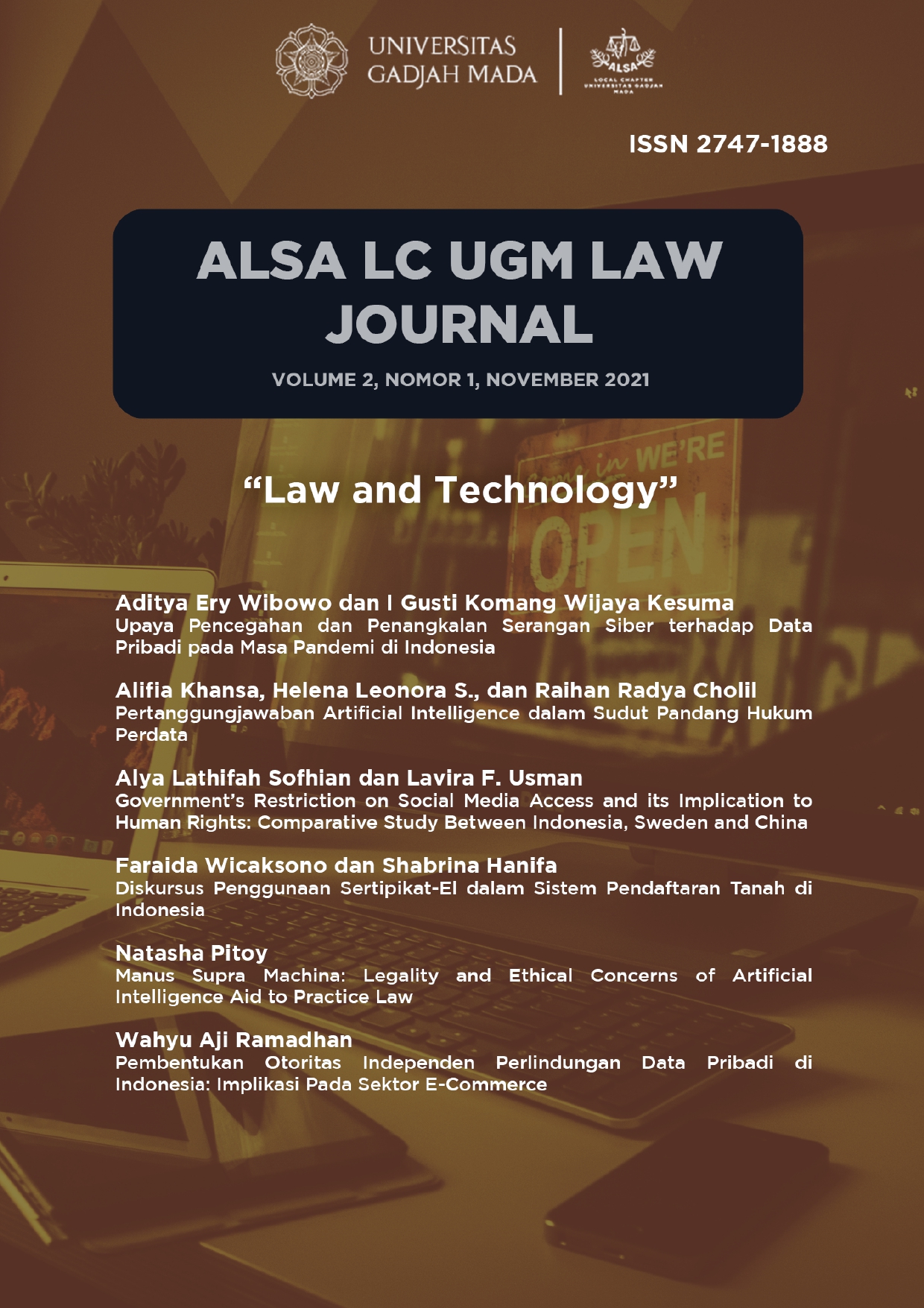Government’s Restriction on Social Media Access and its Implication to Human Rights Comparative Study Between Indonesia, Sweden and China
Abstract
Today, we are living in an era of rapidly evolving modern technology. Modern technology is now able to cover almost all state affairs, from healthcare, transportation, and national security. In this paper, we will focus particularly on national security, as it is a common practice for states nowadays. In conducting the maintenance of national security, the government utilizes several functions of modern technology, for instance; censorship, filtering and restriction of content on social media. In a generation where people seek convenience and accessibility as a way of life, social media, one of the most accessible network systems is increasingly demanded and popularized as it supports the fast moving pace of globalization. This paper will specifically assess and discuss the issue of government restriction of social media during demonstration and its relation to the rights to access of information in Indonesia, in comparison to Sweden and China. The two countries were chosen because Sweden is perceived as the pioneer of information law while China have a long history of restricting information.
Authors who publish with this journal agree to the following terms:
- Authors retain copyright and grant the journal right of first publication with the work simultaneously licensed under a Creative Commons Attribution License that allows others to share the work with an acknowledgement of the work's authorship and initial publication in this journal.
- Authors are able to enter into separate, additional contractual arrangements for the non-exclusive distribution of the journal's published version of the work (e.g., post it to an institutional repository or publish it in a book), with an acknowledgement of its initial publication in this journal.
- Authors are permitted and encouraged to post their work online (e.g., in institutional repositories or on their website) prior to and during the submission process, as it can lead to productive exchanges, as well as earlier and greater citation of published work.


